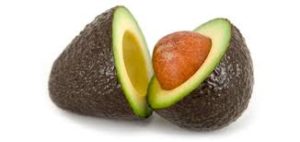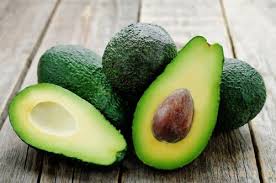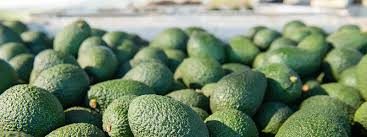If you are nursing, pregnant, looking to become pregnant or simply looking to learn a bit more about health benefits of the mighty avocado, here is a blog post for you!
Most information out there for pregnant mothers is largely based on what not to eat, such as no alcohol, skip empty calories, limit caffeine and stay away from various unsafe foods. One thing we know for certain is that maternal diet can play an important role in reproduction from preconception too postpartum. The maternal diet affects many functions, such as the ability to conceive, to carry out a healthy pregnancy for both mother and baby and to produce adequate and nutritious breast milk [1].
role in reproduction from preconception too postpartum. The maternal diet affects many functions, such as the ability to conceive, to carry out a healthy pregnancy for both mother and baby and to produce adequate and nutritious breast milk [1].
The nutrients commonly referred to before, during and after pregnancy are: iodine, iron, zinc, vitamin A, choline, folate, vitamin B2, vitamin B6, vitamin B12, protein and several types of fatty acids [2-4]. A poor maternal diet is associated with increase in maternal obesity [5] and gestational diabetes [6]. One study found that a daily snack of leafy green vegetable, fruit and milk, resulted in almost half the prevalence of gestational diabetes [7], suggesting that foods rich in micronutrients could have a protective effect against gestational diabetes.
Avocados are a unique nutrient-rich food, containing many essential nutrients important to both maternal health and fetal development. Avocados contain both soluble and insoluble fibers. Fiber intake has been shown to reduce the risk of preeclampsia and gestational diabetes [8-10]. Avocados are a great source of folate, which is known as one of the best nutrients in reducing the risk of birth def ects including spinal bifida. Fatty acids and fat-soluble carotenoids, important in fetal brain, eye and immune development, are both present in avocados [11]. Avocados contain high levels of antioxidants, vitamins and fatty acids, which are important for production of breast milk.
ects including spinal bifida. Fatty acids and fat-soluble carotenoids, important in fetal brain, eye and immune development, are both present in avocados [11]. Avocados contain high levels of antioxidants, vitamins and fatty acids, which are important for production of breast milk.
Finally, research suggests that absorption of nutrients in a salad is enriched when it contains avocados compared to an avocado free salad [12]. So not only does avocado make your salad more delicious, it also makes it more nutritious.
Avocado is a great food choice that offers several nutrients important for preconception, pregnancy and lactation. Don’t worry though, folks that are not actively reproducing can benefit from all their health benefits too, so get out there and get yourself some avocados!
References:
- Champ, M. and C. Hoebler, Functional food for pregnant, lactating women and in perinatal nutrition: a role for dietary fibres? Curr Opin Clin Nutr Metab Care, 2009. 12(6): p. 565-74.
- Ramakrishnan, U., et al., Effect of women’s nutrition before and during early pregnancy on maternal and infant outcomes: a systematic review. Paediatr Perinat Epidemiol, 2012. 26 Suppl 1: p. 285-301.
- Cetin, I., C. Berti, and S. Calabrese, Role of micronutrients in the periconceptional period. Hum Reprod Update, 2010. 16(1): p. 80-95.
- Cox, J.T. and S.T. Phelan, Prenatal nutrition: special considerations. Minerva Ginecol, 2009. 61(5): p. 373-400.
- Heslehurst, N., et al., Trends in maternal obesity incidence rates, demographic predictors, and health inequalities in 36,821 women over a 15-year period. BJOG, 2007. 114(2): p. 187-94.
- Ferrara, A., Increasing prevalence of gestational diabetes mellitus: a public health perspective. Diabetes Care, 2007. 30 Suppl 2: p. S141-6.
- Sahariah, S.A., et al., A Daily Snack Containing Leafy Green Vegetables, Fruit, and Milk before and during Pregnancy Prevents Gestational Diabetes in a Randomized, Controlled Trial in Mumbai, India. J Nutr, 2016. 146(7): p. 1453S-60S.
- Qiu, C., et al., Dietary fiber intake in early pregnancy and risk of subsequent preeclampsia. Am J Hypertens, 2008. 21(8): p. 903-9.
- Frederick, I.O., et al., Dietary fiber, potassium, magnesium and calcium in relation to the risk of preeclampsia. J Reprod Med, 2005. 50(5): p. 332-44.
- Zhang, C., et al., Dietary fiber intake, dietary glycemic load, and the risk for gestational diabetes mellitus. Diabetes Care, 2006. 29(10): p. 2223-30.
- Dreher, M.L. and A.J. Davenport, Hass avocado composition and potential health effects. Crit Rev Food Sci Nutr, 2013. 53(7): p. 738-50.
- Unlu, N.Z., et al., Carotenoid absorption from salad and salsa by humans is enhanced by the addition of avocado or avocado oil. J Nutr, 2005. 135(3): p. 431-6.

